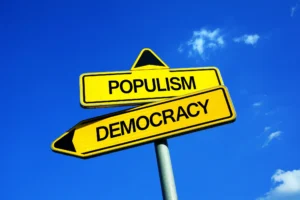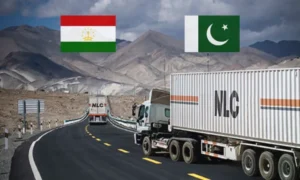Track II diplomacy, also known as “unofficial diplomacy,” plays an important role in settling international conflicts by supplementing formal diplomatic efforts with informal meetings and debates. This type of diplomacy incorporates non-governmental players, such as academics, retired diplomats, and other specialists, who engage in debate and talks to establish confidence, explore solutions, and prepare for formal negotiations. Despite its informal nature, this diplomacy has been beneficial in a variety of global conflict resolution endeavors.
The Oslo Accords, which set the framework for peace between Israel and Palestine, are one of the most well-known examples of successful Track II diplomatic efforts. Norwegian diplomats facilitated the conversations, which included Israeli and Palestinian officials. They took place in secret in Oslo, Norway. While formal negotiations between the two parties had hit a standstill, Track II efforts resulted in the signing of the Oslo Accords in 1993, a key step towards regional peace. Track II diplomacy, therefore, can help in formal negotiations besides breaking deadlocks.
Track II diplomacy uses to mediate conflicts around the world.
The Carter Centre, situated in the US, also uses Track II diplomacy to mediate conflicts around the world. The center, established by former US President Jimmy Carter, engages in Track II diplomacy by fostering discussions between opposing parties and promoting rebuilding activities. One significant achievement of the Carter Center’s Track II diplomacy was its role in mediating the conflict between Sudan and South Sudan, which resulted in the signing of a peace accord in 2005.
Track II diplomacy has also helped to resolve the situation in Northern Ireland. During the Troubles, a period of strife in Northern Ireland marked by violence between nationalist and unionist communities, Track II activities were critical in establishing trust and creating the framework for the Good Friday Agreement of 1998. Organisations like the Glencree Centre for Peace and Reconciliation encouraged conversations between members from both communities, opening the way for official negotiations and, eventually, regional peace.
Despite deteriorating official relations between India and Pakistan, Track II diplomacy has always remained effective in preserving discussion and building people-to-people contacts. “Chaophraya Dialogue” established in 2008, which is a dialogue between India and Pakistan. It seeks to improve understanding and lessen tensions between the two countries by facilitating informal, off-the-record meetings with renowned professors, retired diplomats, military veterans, and policy experts from both countries.
The Chaophraya Dialogue has played an important role in keeping communication channels open, particularly during times of high political and military conflict.

This discussion, named after Thailand’s Chaophraya River, where the first round of talks took place, aims to examine opportunities for collaboration and peace in South Asia by addressing a variety of bilateral concerns including as security, commerce, and the Kashmir conflict. The Chaophraya Dialogue has played an important role in keeping communication channels open, particularly during times of high political and military conflict. and the Neemrana Dialogue, which is one of India and Pakistan’s oldest and most notable Track II diplomacy endeavours. Named after the Neemrana Fort in Rajasthan, India, where the inaugural session took place in the early 1990s, this conversation provides an informal forum for debates amongst former diplomats, military officers, academics, journalists, and policy experts from both nations.
Also Read: Big Stick Diplomacy Failing Big Time for India
The Neemrana Dialogue seeks constructive solutions to bilateral challenges, fosters mutual understanding, and promotes regional peace and security. Unlike official diplomatic meetings, Track II diplomacy, such as the Neemrana Dialogue, provides for more open and flexible discussions without the immediate constraints of formal negotiations. This can aid in the generation of fresh ideas as well as the development of personal relationships, both of which can positively impact the overall climate of bilateral interactions. The Neemrana Dialogue has covered a wide range of subjects over the years, including security, economic cooperation, environmental difficulties, and people-to-people contacts, demonstrating the India-Pakistan relationship’s multifaceted dynamics.
These among many have brought together academics and officials from both countries to debate thorny topics and brainstorm potential solutions. While these efforts have not always yielded visible results, they have played an important role in maintaining communication lines open and fostering mutual understanding.
This route of diplomacy has been very effective in tackling cybersecurity issues and promoting cyber stability among governments. With the increased reliance on digital technology, cybersecurity has emerged as a key issue in international relations. Track II projects, such as the EastWest Institute’s Global Cooperation in Cyberspace Programme, convene cybersecurity experts, policymakers, and business representatives to explore cyberspace norms, standards, and confidence-building measures. These activities are intended to improve cooperation, lower the danger of cyber conflict, and promote a safer and more secure digital environment for all nations.
Track II diplomacy has also been used on the Korean Peninsula, where the Korean War armistice has kept North and South Korea technically at war for decades. Unofficial negotiations between North Korean officials and former US officials, including former President Donald Trump’s advisor, have tried to de-escalate tensions and explore settlement options. While these efforts have not resulted in a comprehensive resolution, they demonstrate Track II diplomacy’s potential for promoting conversation and creating bridges between long-standing rivals.
Furthermore, Track II diplomacy has proven useful in resolving environmental and resource-related problems. In the Nile River basin, Track II projects involving multiple riparian countries have worked to encourage collaboration and long-term management of the river’s resources. By bringing together experts, policymakers, and stakeholders from several countries, these efforts have helped to foster trust and dialogue on topics such as water sharing and hydropower development. Such instances demonstrate Track II diplomacy’s versatility in dealing with complicated challenges other than typical political confrontations.
Despite its success, Track II diplomacy confronts hurdles. One of the most significant obstacles is a lack of formal authority, which can limit the significance of the results. Moreover, Track II activities may be hampered by political changes or a lack of commitment from Government actors. However, the informal and flexible nature of Track II diplomacy allows for creative approaches and inventive solutions, making it an effective instrument for resolving international problems.
This genre of diplomacy serves as an important supplement to traditional diplomatic efforts in resolving international conflicts. Its ability to engage non-governmental parties, foster trust, and investigate novel alternatives makes it an essential instrument in conflict resolution. While confronting hurdles, Track II diplomacy has proven useful in a variety of situations around the world, showcasing its capacity to promote peace and stability.
Sehr Rushmeen, an Islamabad based freelance researcher, did her MPhil from National Defence University (NDU) in Strategic Studies, and her BSc from University of London (UOL) in International Relations. Her area of research interest is Strategic Nuclear Studies, Artificial Intelligence in Warfare, South China Sea and South Asian Politics. She tweets as @rushmeentweets and can be reached on sehrrushmeenwrites@gmail.com.




